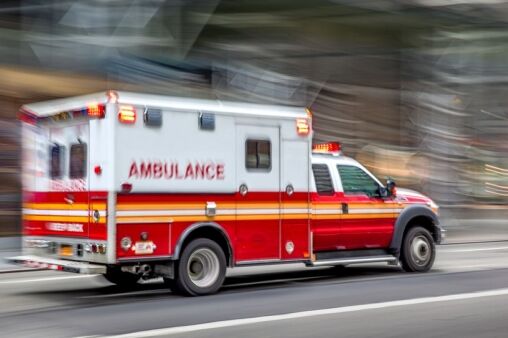
One of the first steps a lawyer advises individuals to take following a car accident is to seek immediate medical attention for their injuries. This helps protect and preserve your health and safety. It can also help you build a more compelling claim for compensation for your injuries and strengthen your legal case.
Does “immediate medical attention” mean you must take an ambulance after a car accident? It’s time to explore the signs you need emergency care rather than transporting yourself to a doctor following a Chicago collision.
Signs and Symptoms That Warrant Immediate Ambulance Transport
How do you know when to take an ambulance after a car accident and when you can transport yourself for medical care? First and foremost, always err on the side of caution. If you are in pain or unsure whether you’ve sustained injuries, let emergency medical services evaluate and transport you for care.
Other signs and symptoms that warrant immediate care and ambulance transport include:
- Any loss of consciousness
- Indications of a head injury
- Paralysis or loss of sensation or motion in any body part or extremity
- Uncontrolled bleeding
- Severe pain
- Burns
- Open fractures or broken bones
If emergency personnel recommend that you be transported to the hospital, heed their advice. These are medical professionals who want what’s best for you. Following their advice may save your life, especially since some significant medical conditions may not immediately manifest distressing symptoms.
Why Taking an Ambulance Can Help Your Injury Claim
Your health is paramount. Taking an ambulance from the accident scene means you receive prompt medical care, and emergency physicians can document the extent of your injuries. Medical records from an emergency room visit may also help establish that your injuries were the direct result of the crash, and not from some other source or pre-existing condition.
Often, insurance adjusters look for ways to diminish or deny an accident claim, often by saying they have insufficient medical documentation to substantiate the severity of your injuries, or that your injuries were not a result of the accident but some other incident or pre-existing issues. Your prompt medical attention and clear link between the accident and your injuries can help dispute these claims.
What If You Don’t Feel Hurt at the Scene? Delayed Injuries Explained
In some situations, accident victims may not feel hurt at the crash scene or believe their injuries are minor and do not require an ambulance or hospital visit to address them. Unfortunately, many victims find out too late that the delayed symptoms of serious injuries are an all too real phenomenon.
The stress of an accident triggers a sudden adrenaline rush. Adrenaline is the chemical responsible for our “fight-or-flight” response. It sometimes allows humans to overcome painful or traumatic situations in the moment to preserve life. However, adrenaline can also mask pain and other signs of serious injuries, like head injuries, internal wounds, or bleeding. Delayed injuries can be life-threatening since people don’t feel the need to seek immediate medical care, allowing the injury to worsen, sometimes to the point where the injury can be fatal.
Contact Our Chicago Car Accident Lawyers for a Free Case Review
At Salvi, Schostok & Pritchard P.C., we have the resources to provide you with the help you need and pursue maximum compensation for your injuries. We have recovered more than $3 billion in verdicts and settlements and are ready to work for you.
